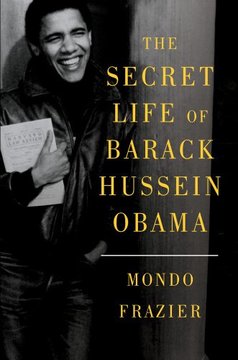
RidesAPaleHorse suggested an excellent read by Pajamas Media blogger, Ron Silver. He was right: this is excellent stuff. The title is "Fear".
We have a soft spot for pieces that reference history accurately and appropriately and this post does both. We intended to cite merely a paragraph or two. Then we worried, well, what if surfers only read those two paragraphs and never got over and read the rest of it.
Looking for a place to break the post was difficult. Usually, there's a natural break in a story, a lull. This one keeps the reader's attention throughout: as we said it was difficult.
We finally made the decision, along with urging for readers to finish the entire piece by Silver. It's just the antidote for professional hand-wringers who ply their trade and pass off legitimate fear as--hand-wringing.
Read the entire piece, you'll be glad you did.
Especially if you've read any Paul Krugman lately.
Fear
You injure yourself, and in that first moment, there is nothing in the world but your pain. You grimace, curse, and wish the hurt would just go away. But what’s worse than feeling pain, is not feeling it when you need to. People who have CIPA (Congenital Insensitivity to Pain with Anhidrosis) live each day with the possibility that something they can’t sense is killing them. Pain, though unpleasant and sometimes debilitating, is at times, necessary. It is our body’s way of warning us.
Fear, though unpleasant and sometimes debilitating, is an equally valuable instrument of preservation. When we are cut, it is natural to cry out in pain; and when those who would cherish our destruction threaten us, we ought to be afraid.
In February of 2004, NYU held a conference about fear. The conference was called “Fear: Its Uses and Abuses.” In the aftermath of Pearl Harbor, posters with crude caricatures of Japanese and Nazis appeared with “Warning! Our homes are in danger now!” Exclamation points at the beginning and close of the warning, in case the message escaped us. It was called propaganda. As reported in the New York Times, in an article by Edward Rothstein, (propaganda’s) “accepted function was to galvanize, urge, justify, remind and yes, frighten.” (italics mine)
After the Second World War, with Truman’s approval rating in national polls falling more than 50 points, the president and his secretary of state, Dean Acheson, called in Senator Arthur Vandenberg, the Republican chairman of the Senate Foreign Relations Committee, and explained to him how the Communists were establishing a beachhead in Greece that would threaten all of Western Europe. According to Tim Weiner, author of Legacy of Ashes: “The U.S. was going to have to find a way to save the free world-and Congress would have to pay the bill.” Senator Vandenberg replied ”Mr. President, the only way you are going to get this is to make a speech and scare the hell out of the country.” On March 12, 1947 the president made that speech to a joint session of Congress. He argued that money needed to be sent to Greece, because they “were threatened by the terrorist activities of thousands of armed men.” Thus the president’s decision with Congressional approval led to one of the early battles against Soviet domination. These cold and not so cold wars would last for more than 50 years, culminating in the Soviet Empire’s defeat. Fear was the lubricant. At times there was domestic overreaction as the rise of politicians like McCarthy and Nixon took advantage of the fear. And grievous mistakes were made that scarred many of my generation and I daresay our nation. But our nation survived the excesses and survived the Soviet threat.
After September 11, with the emerging threat of Islamic terrorism becoming more manifest in the public mind (many of us took this threat more seriously than others prior to this atrocity), what sticks out most immediately is how, again according to Edward Rothstein, there were “[s]o few examples of graphic American propaganda and none using ethnic or racial caricatures. Yet beginning with Al Gore, who delivered the keynote address at the Conference, the former vice president asserted again and again that the American government is preoccupied with instilling fear.” The conference was essentially about fear being encouraged by our government and exacerbated by the media. It was compared with the irrational fear of Communism and the perversions of McCarthyism.”
The goal of the conference promoters was clear to me. Indeed we now all have reason to be afraid. But apparently we’re afraid of different things. Some factions are less concerned with the folks who have declared war on us and who are determined to kill us, our children and our civilization. These factions have chosen our elected government, chosen by us to secure and defend us, to be their adversary. Evidently my fear was rational. I just had the wrong enemy in my sights. To which my grandfather would have responded, had he been born elsewhere and not in a shtetl, “poppycock.”
When I hear the word fear, mongering is not far behind. I’ve always had a predilection for the word monger. In England one doesn’t necessarily go to buy fish at a store but one goes to a fish-monger. Thus any dealer or trader in a specified commodity is a monger. Monger, cute, quaint but unfortunately taking on ominous tones these days. The second definition, offered by many dictionaries is: a person who promotes a specified activity, situation, or feeling, esp. one that is undesirable or discreditable: rumor monger/warmonger.
Of course the experts at fear mongering are our parents. “If you cross the street when the light is red you will most likely be hit by a car” or when they tried to instill fear by warning us we had a choice-be naughty or nice-choose naughty and you’re shut out of holiday cheer and toys-be nice and you’ll be rewarded. Parents-the root of all fear mongering. Philip Larkin lives.
So pace Franklin Roosevelt, apparently the only thing to fear these days is not the people pointing a gun at our heads and threatening to kill us, our children and themselves but our president and everyone running as a Republican this year. The only thing they have to sell is fear-mongering, so say the fearless critics.
Paul Krugman, in a recent op-ed for the New York Times (Oct. 29th, 2007), began his column, noting: “In America’s darkest hour, Franklin Delano Roosevelt urged the nation not to succumb to “nameless, unreasoning, unjustified terror.” But that was then. He goes on to make his point that “[t]here isn’t any such thing as Islamofascism-it’s not an ideology; it’s a figment of the neo-con imagination.” He continues, “in the wake of 9/11, the Bush administration adopted fear-mongering as a political strategy, instead of treating the attack as what it was-an atrocity committed by a fundamentally weak, though ruthless adversary-the administration portrayed America as a nation under threat from every direction.”
Apparently Mr. Krugman and many others have no fear that a couple of guys in caves with access to computers represent an existential threat to the way we live. Unless of course we give in to nameless unreasoning fear and destroy ourselves from within.
So allow me to try to name, provide a reason and a justification for our fears.
International Affairs 101 looks at intentions and capabilities. If my five-year-old son declares the United States his enemy and he intends to destroy it, call me crazy but I take it with a grain of salt. (Although I will monitor more closely what he’s watching on TV and check the parental controls on the computer.) If a group of people have the same intention as my son but they may represent the feelings of hundreds of thousands or more likely millions upon millions of people I take the threat more seriously. And when these folks have successfully attacked our military, our diplomats, and our cities and civilian population, well yeah, I take them at their word. Perhaps I didn’t when they officially declared war on us more than 10 years ago, but they’ve certainly got my attention now.
As to capabilities, the world we now live in has empowered individuals to do things unimaginable 20 years ago. Mr Krugman might want to consult his colleague Tom Friedman about the technologies available to students in Islamabad or miscreants in caves.
Digression: caves in the Muslim narrative have a resonance different from ours. We may associate caves with Neanderthals, but many a Muslim intuitively understand that it was from a cave that Mohammed received not only revelations (The Night of Power) but went on to conquer by sword much of the world.
In Krugman’s reading of history, our president has damaged our democracy more than the Alien and Sedition Acts during John Adams’ tenure; more than the suspension of habeas corpus during Lincoln’s, more than Eugene Debs (a leader of the labor movement who opposed Woodrow Wilson as the Socialist Party candidate in the 1912 presidential election) going to jail, under the Espionage Act, to serve a 10-year sentence for making an anti-war speech during the Woodrow Wilson years. The Espionage Act was passed at the urging of President Woodrow Wilson, who feared any widespread dissent in time of war, thinking that it constituted a real threat to an American victory.
And more than Roosevelt trying to pack the Supreme Court during peacetime and the subsequent internment of Japanese-American citizens, as well as Nixon’s use of the government to punish his personal enemies. The genius of our governance is that we have self-correctional ways of coming to terms with government excesses and have an electorate that is vigilant in making sure rights are not abrogated. This has always been and will remain a tension in our polity, along with liberty and equality and pre-Civil War amendments and post-Civil War amendments. Most First Amendment “rights” were developed during the last century, not at our founding. So-called “privacy” rights are the battleground now.
So, does Mr. Krugman really think it takes courage to critique U.S. policy, strategy and tactics in an ongoing war against our real enemies? His willful blindness is more of a danger to our Republic than today’s battles over the details of NSA surveillance, or whether section 215 of the Patriot Act is excessive and needs to be adjusted, or that the Abu Ghraib scandals were anything other than the actions of sadistic, rogue military persons and not representative of our armed forces. We will make the corrections over time. That is part of the genius of our Founders. But our civilization and its values may not have the time if we cave in to the Paul Krugmans of the world. I’m making an issue of Mr. Krugman (an expert in the dismal science of economics) because he has a forum in the New York Times. Although I’d gain a great deal of respect for his employer if they published the Danish cartoons or covered Muslim on Muslim violence with the same relish they cover our own government’s shortcomings.
Read the rest of this enlightening, entirely reasonable post.
Ron Silver: Fear
intro: Mondoreb
[graphic:RidesAPaleHorse]
Source: Pajamas Media - Ron Silver: Fear
Death by 1000 Papercuts Front Page.






























No comments:
Post a Comment
Leave your name/nic.
We've changed the comments section to allow non-registered users to comment.
We'll continue like that until it's being abused.
We reserve the right to delete all abusive or otherwise inappropriate comments.